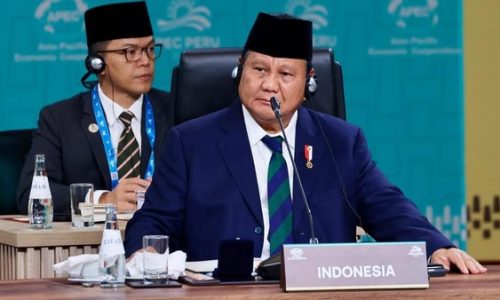Coordinating Minister for the Economy, Airlangga Hartarto, has taken on the role of Acting Minister of Manpower as of Monday, September 30, 2024, stressing his focus on evaluating the employment status of ride-hailing (ojek) drivers, who have been seeking better job security and benefits.
While discussions on the drivers’ status are ongoing, Secretary at the Coordinating Ministry for the Economy, Susiwijono, said that no decision has been made on whether the current partnership model, which classifies drivers as independent contractors rather than employees, will be altered or retained.
“This is something we are actively reviewing,” Susiwijono zaid on Wednesday, October 2, 2024.
He further noted that the existing agreements between drivers and ride-hailing companies do not provide sufficient job security or access to essential benefits such as health insurance.
“We are looking into what is needed. If the government needs to step in, we will provide assistance,” Susiwijono added, underscoring the government’s goal to ensure that all workers have access to labor protections and healthcare benefits.
International recognition of online ride-hailing drivers as platform workers has already been established by the International Labour Organization (ILO), with Singapore also adopting similar policies.
However, Susiwijono pointed out that gig workers, like ojol drivers, have unique characteristics that make their employment status different from traditional workers. Adjustments will need to be made to account for these differences.
The government plans to issue regulations addressing this through a Ministerial Regulation (Permenaker) rather than a Government Regulation (PP), as the latter would require a longer process.
“We aim to move quickly with the Permenaker to ensure protections are in place,” Susiwijono confirmed.
The review comes after thousands of online drivers held a protest in front of the Ministry of Communication and Informatics in August 2024, demanding legal recognition.
Despite their calls, some experts believe that formalizing the drivers’ employment status could potentially harm the flexibility that many gig workers value.
Nailul Huda, Director of the Digital Economy at the Center of Economic and Law Studies (Celios), cautioned that classifying drivers as regular employees could result in the loss of work flexibility.
“While drivers may seek rights similar to regular employees, the shift could mean losing the advantages of gig work, such as flexible working hours,” Nailul said on August 30, 2024.
This debate over the legal status of ojek drivers has been ongoing since 2023, with the Ministry of Manpower proposing a draft regulation that capped work hours at 12 per day. Many drivers opposed this, citing concerns over losing control of their schedules.
“Restricting our hours to 12 would harm us because it reduces our flexibility,” Ferry Budhi, Chairman of Gograber Indonesia, said during a protest on August 29, 2024. As the government continues to review the issue, it aims to find a balance between providing better protections for drivers and preserving the flexibility that defines gig work.









